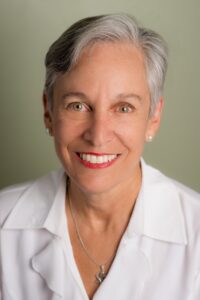Nearly 15% of our community, or 175,000 Austinites, are food insecure and unsure of where they will find their next meal, according to a recent study from Feeding America. At People’s, we believe that everyone deserves access to healthy, quality food. However, we know that accessing healthy food can be a challenge.
Those living in food insecure households are at greater risk of diabetes, obesity, mental health issues, hypertension, and developmental delays in children. Some even face the difficult choice of putting food on the table or foregoing needed medical care. This poses a serious public health concern.
Now, those who are struggling have another option. In November 2022, People’s opened a FoodFARMacy to provide free groceries from the Central Texas Food Bank (CTFB) to patients in need. In the first quarter, since it opened, People’s FoodFARMacy assisted 858 individuals.
WHAT IS PEOPLE’S FOODFARMACY?
Thanks to a partnership with CTFB, People’s FoodFARMacy is stocked weekly with fresh and frozen fruits and vegetables, lean proteins like eggs and milk, and shelf-stable items like rice and beans. On Tuesdays, patients may walk in and request groceries at no cost, taking home an average of four to five bags—enough to feed a family.
GOALS
Our goal is to address a patient’s overall health and well-being by improving the conditions into which people are born, live, learn, work, play, and age that impacts their health and quality of life. With this new program, the clinic aims to expand its focus on whole-person health care by addressing hunger. One way to accomplish this is to screen each patient for food insecurity. Research shows that this is often a hidden condition, which is not revealed unless asked directly.
Even with the very best medical care, if someone is food insecure a huge component of his or her health is not addressed. We see People’s FoodFARMacy as an extension of our mission to provide patients with high quality, affordable health care with dignity and respect.
PARTNERSHIP WITH CTFB
People’s FoodFARMacy is Central Texas Food Bank’s first-ever partnership with a medical clinic. Recognizing health is about so much more than just treating ailments, this program will be life-changing for patients who have trouble feeding their families.
THANK YOU
Right now, access to health care is more critical than ever, and the lack of a nutritious diet is compromising the health of far too many people. Thankfully, there is another option: high quality, affordable health care at People’s Community Clinic alongside the FoodFARMacy.
The clinic depends on the generosity of donors like you. THANK YOU for your continued support. Because of you, we are able to provide the care that our patients need and deserve.

With Gratitude,

Regina Rogoff, JD
Chief Executive Officer
People’s Community Clinic
